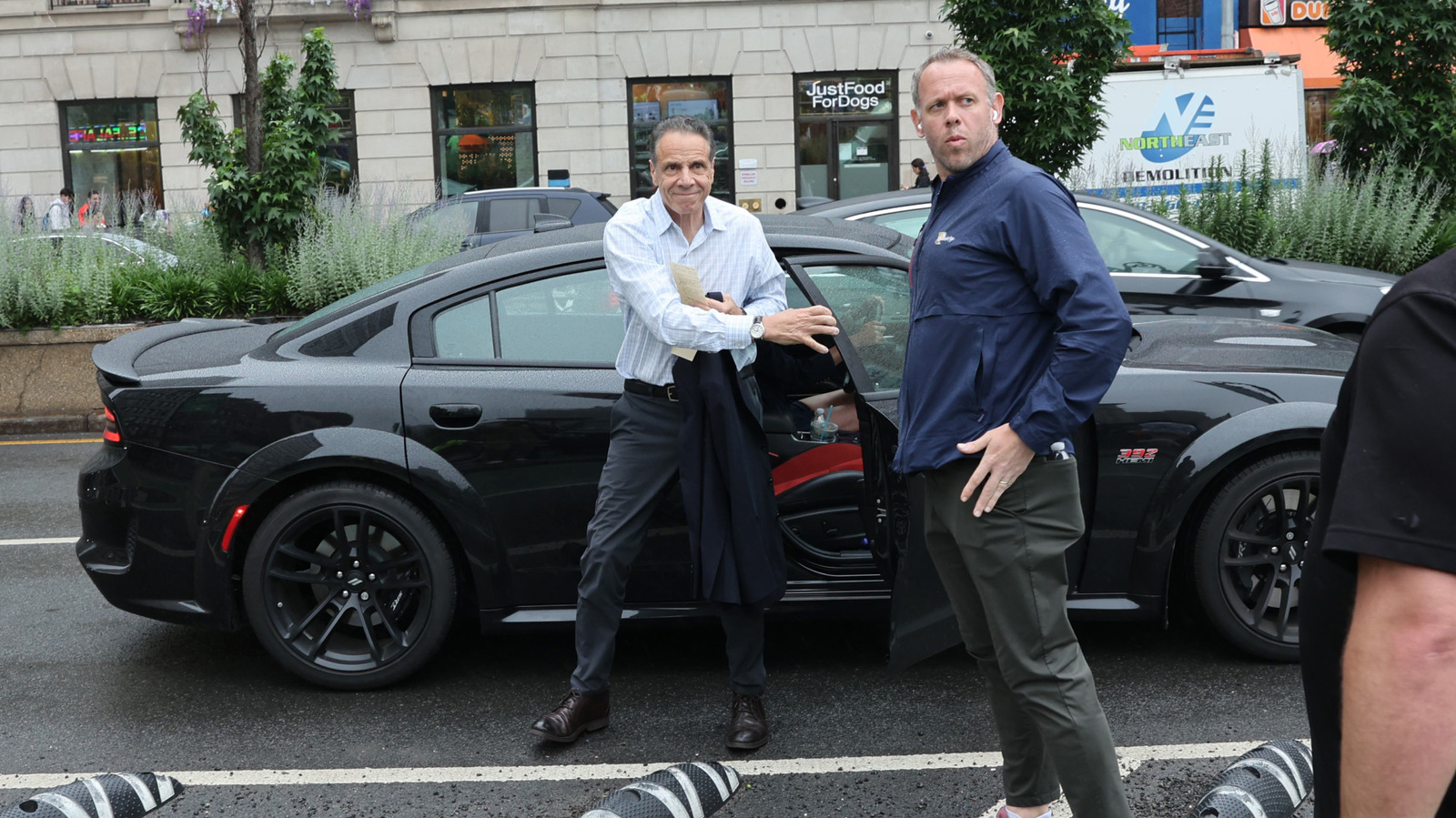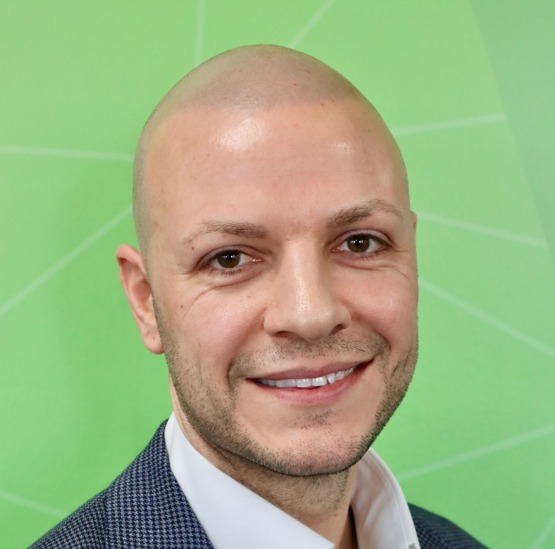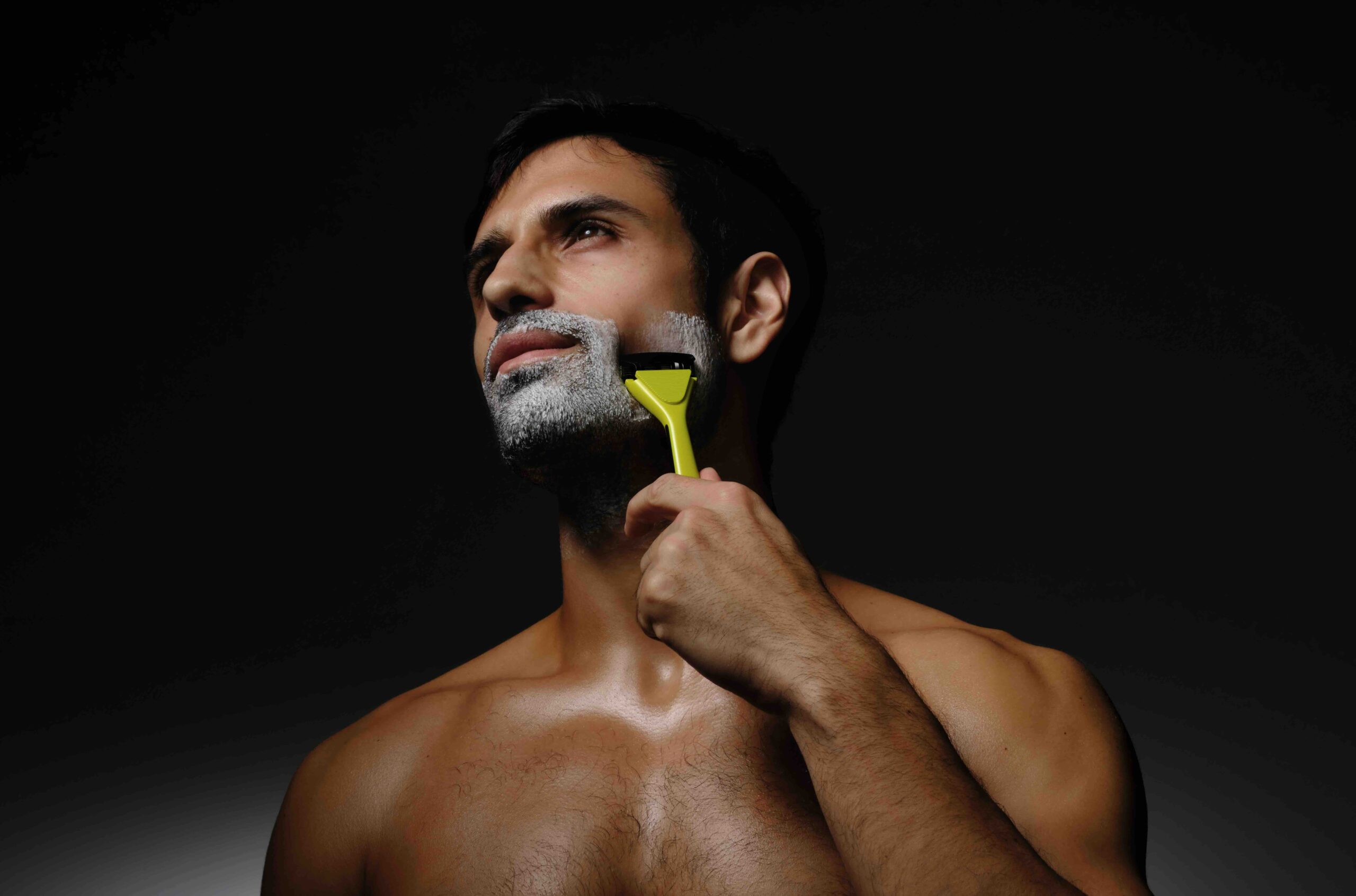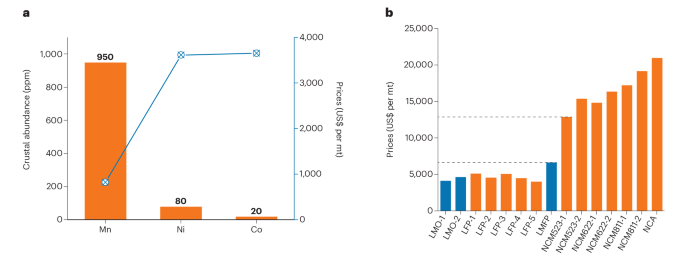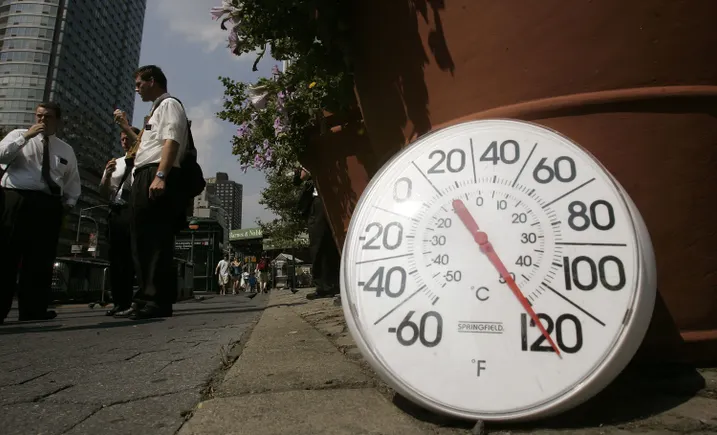Legal Ethics Roundup: CA Upholds Eastman Disbarment; Toxic Work Culture For Federal Clerks; ABA Sues Trump; Honoring Juneteenth & More
Your tour of all things related to lawyer and judicial ethics, with University of Houston law professor Renee Knake Jefferson. The post Legal Ethics Roundup: CA Upholds Eastman Disbarment; Toxic Work Culture For Federal Clerks; ABA Sues Trump; Honoring Juneteenth & More appeared first on Above the Law.
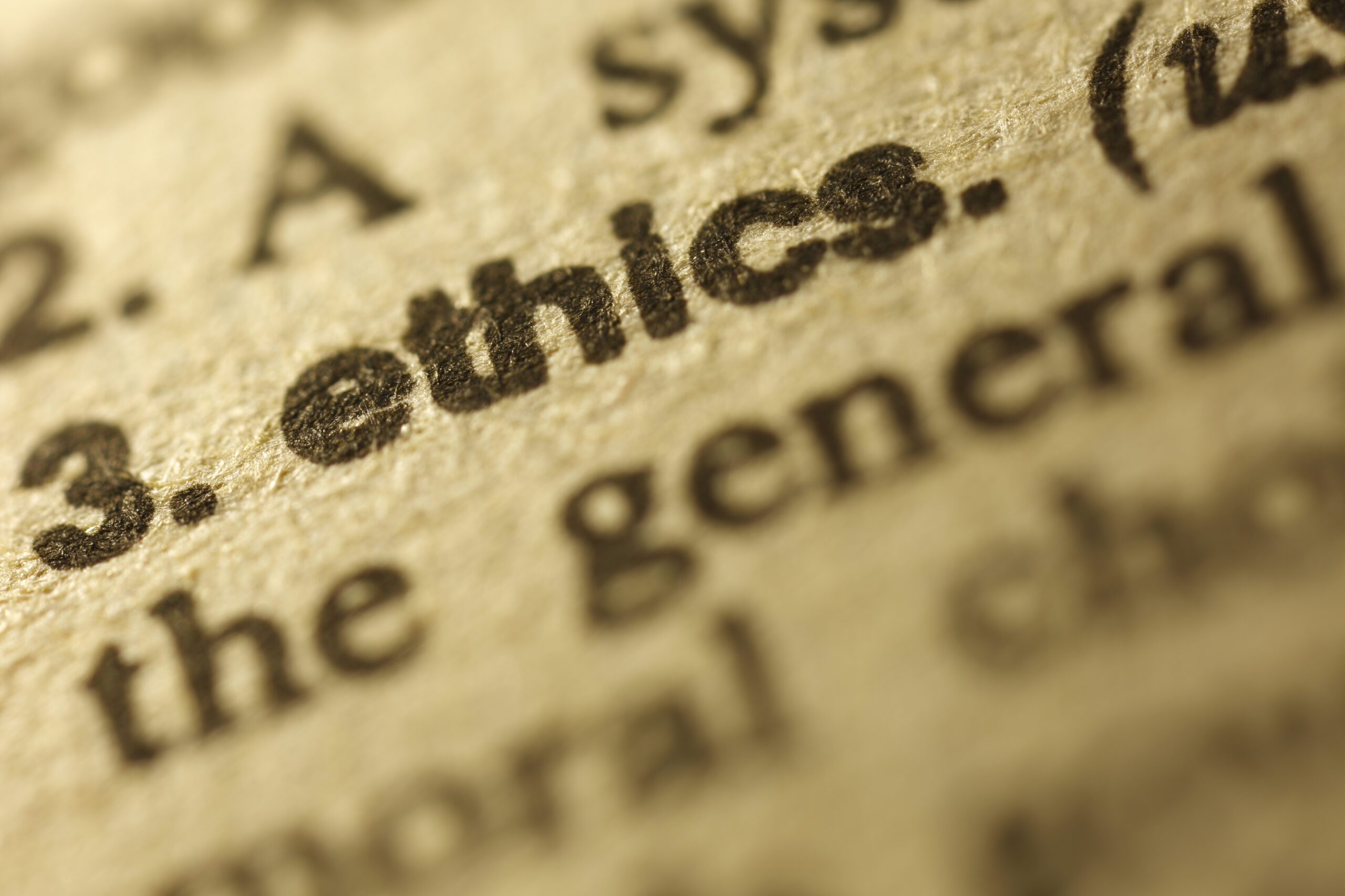
Ed. note: Please welcome Renee Knake Jefferson back to the pages of Above the Law. Subscribe to her Substack, Legal Ethics Roundup, here.
Welcome to what captivates, haunts, inspires, and surprises me every week in the world of legal ethics.
Hello from San Antonio, where I attended the State Bar of Texas Annual Meeting last week. A highlight was my husband Wallace B. Jefferson’s keynote speech delivered on Juneteenth, where he recounted his incredible personal story as a descendant of enslaved people who became the first African American Justice and Chief Justice on the Supreme Court of Texas. You can read more about his story in this article published by Duke Law’s Judicature magazine in 2023. Here’s a preview:
Thirty-three years after Martin Luther King’s “I Have a Dream” speech at the Lincoln Memorial, I visited Washington, D.C., for the first time. It was Tuesday, Nov. 5, 1996 — a presidential Election Day. That morning, I argued my first case before the United States Supreme Court: Board of Commissioners of Bryan County v. Brown. … I would stand at the same podium where Thurgood Marshall challenged “separate but equal” in Brown v. Board of Education. The ironies were inescapable: … Brown v. Board and Board v. Brown; Thurgood Marshall and Wallace Jefferson — two lawyers who became the first African American justices on their respective supreme courts. These eerie correlations reminded me of the “unfinished work” that Lincoln invoked in his Gettysburg Address: that we must dedicate ourselves to the same noble cause for which those who fought gave their last full measure of devotion. And our work is not finished. We are not yet a perfect union. But we are a union. And for our union to thrive, we must learn how to get along. Divided, we cannot stand. …
I won that case before the Supreme Court. Justice Sandra Day O’Connor, the first woman ever to serve on the Court, wrote the opinion. When students at San Antonio’s Wallace B. Jefferson Middle School graduate, their next stop is the Sandra Day O’Connor High School. This is not irony but the product of a nation that embraces the radical proposition that all men and women are created equal.
And now for your headlines, which span the past two weeks because last week, of course, featured the Second Annual LER Summer Reading List. (Be sure to check it out if you missed it!)
Highlights from Past Couple of Weeks – Top Ten Headlines
#1 “California Court Upholds John Eastman’s Disbarment for Role in Trump 2020 Plot.” From Politico: “A California court has upheld a recommendation that attorney John Eastman should lose his law license because of his central role in President Donald Trump’s effort to subvert the 2020 election. A three-judge ‘review panel’ of the California State Bar Court found that Eastman’s conduct was so egregious — and his remorse so lacking — that the only remedy was to permanently prohibit him from practicing law. … A judge of the State Bar Court, Yvette Roland, had recommended Eastman’s disbarment last year, a ruling that immediately resulted in Eastman’s suspension from practicing law.” Read more here.
#2 Puerto Rico Adopts Duty of Technology Competence and Allows Non-Lawyer Ownership In New Rules of Professional Conduct. From Robert Ambrogi in LawSites: “I wrote yesterday about the Puerto Rico Supreme Court’s adoption of the duty of technology competence, done as part of its promulgation of new rules of professional conduct to replace a code of ethics that had governed lawyers’ professional conduct in Puerto Rico since 1970. While Puerto Rico modeled its new Rules of Professional Conduct on the American Bar Association’s Model Rules, it diverged from the ABA in two significant respects. One, as I explained in yesterday’s post, was to add a separate rule devoted to the duty of technology competence, rather than address the duty through a comment to the general rule on competence, as the ABA does. The other — and potentially more significant — divergence was to revise Rule 5.4 to allow non-lawyers to have ownership interests in law firms.” Read more here.
#3 “Trump’s Strategy in Law Firm Cases: Lose, Don’t Appeal, Yet Prevail.” From the New York Times: “The Trump administration is ordinarily quick to appeal its losses. … But administration lawyers have done nothing to challenge a series of stinging rulings rejecting Mr. Trump’s efforts to punish prominent law firms for what he called ‘conduct detrimental to critical American interests’ by representing clients and causes not to his liking. The administration’s unconventional litigation strategy is telling, said W. Bradley Wendel, a law professor at Cornell who is an authority on legal ethics. ‘They knew that these were losing positions from the beginning and were not actually hoping to win in court, but rather to intimidate firms into settling, as many firms did,’ he said. ‘Now that they have racked up the four losses in district courts, it is not surprising that they are not appealing, because I don’t think they ever thought these were serious positions.’” Read more here (gift link).
#4 “American Bar Association Sues to Block Trump’s Attacks on Law Firms.” From Reuters: “The American Bar Association sued the Trump administration on Monday, seeking an order that would bar the White House from pursuing what the ABA called a campaign of intimidation against major law firms. The lawsuit, filed in federal court in Washington, D.C., said the administration violated the U.S. Constitution in a series of executive orders targeting law firms over their past clients and lawyers they hired.” Read more here. Download the complaint here, and read the ABA’s press release about the lawsuit here.
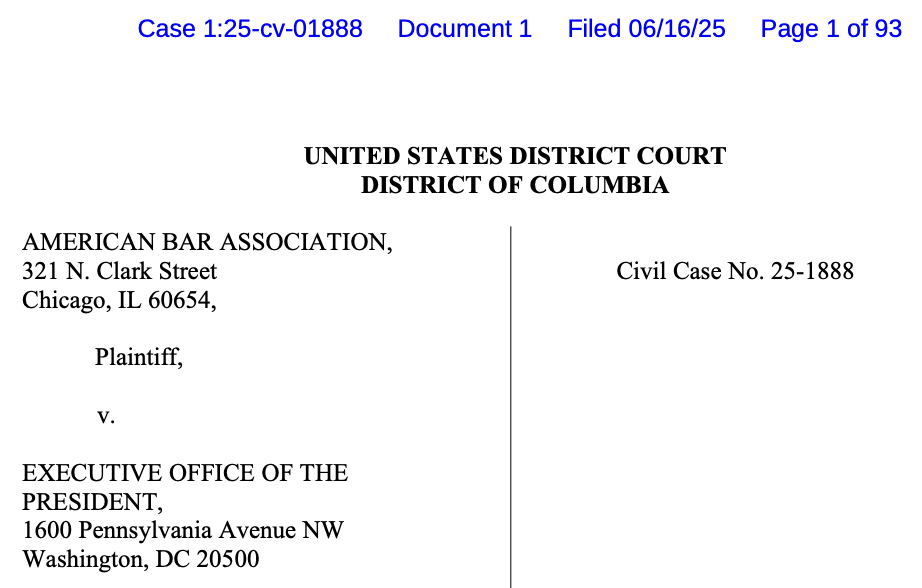
#5 “Supreme Court Disclosures Detail Millions in Justices Book Payments.” From The Hill: “The Supreme Court justices’ annual financial disclosures were released Tuesday, revealing millions of dollars in combined book payments to the justices in 2024. Justice Ketanji Brown Jackson took in the most, disclosing a nearly $2.07 million book advance from Penguin Random House, which published her memoir, ‘Lovely One,’ in September. Jackson received nearly $894,000 the year prior.” Read more here.
#6 “Federal Judges are Powerful. Some of Their Law Clerks Describe a Toxic Work Culture.” From NPR: “For more than a year, NPR has investigated serious misconduct in the federal judiciary — and how difficult it is to hold judges accountable. At one end of the spectrum, we heard from clerks who alleged they suffered sexual assaults, bullying, and pregnancy discrimination. But the power imbalance between judges and their young clerks also fuels a broader, more insidious culture, where clerks are expected to surrender control over nearly every aspect of their lives.” Read more here.
#7 “Michigan Law Review Sued for Alleged Racial, Sexual Bias. School Vows Vigorous Defense.” From the Detroit News: “A conservative civil rights organization is asking a federal judge to order the Michigan Law Review Association to stop using race and sex preferences to select its members and articles and appoint a court monitor to oversee future decisions by the nonprofit. In a lawsuit filed Wednesday in U.S. District Court in Detroit, a group called the Faculty, Alumni, and Students Opposed to Racial Preferences, or FASORP, accused the association for the law journal of the University of Michigan Law School of excluding articles from conservative White students and using race and sex preferences to select its members and articles. … The group is suing on behalf of three unnamed White male, heterosexual law professors who have submitted articles to the Michigan Law Review in the past and were all rejected. ‘Individuals A, B, and C are unable to compete on an equal basis with authors who are women, racial minorities, homosexuals, or individuals who engage in gender-nonconforming behavior or identify with a gender that departs from their biological sex,’ according to the lawsuit.” Read more here. (Full disclosure: my forthcoming piece “When Lawyers Protest” will be published by the Michigan Law Review in 2026).
#8 Legal Ethics Scholars File Amicus Brief in Villarreal v. Texas. Along with several other legal ethics scholars, I joined an amicus brief filed in Villarreal v. Texas, a case the US Supreme Court will take up during the 2025 term. At issue is whether a trial court violates a defendant’s Sixth Amendment right to counsel by prohibiting the defendant and his lawyer from discussing testimony during an overnight recess. We argue that a ban on discussions like this jeopardizes the lawyer’s compliance with core professional responsibilities and undermines attorney-client privilege and the duty of confidentiality. Read more and download the amicus brief here.

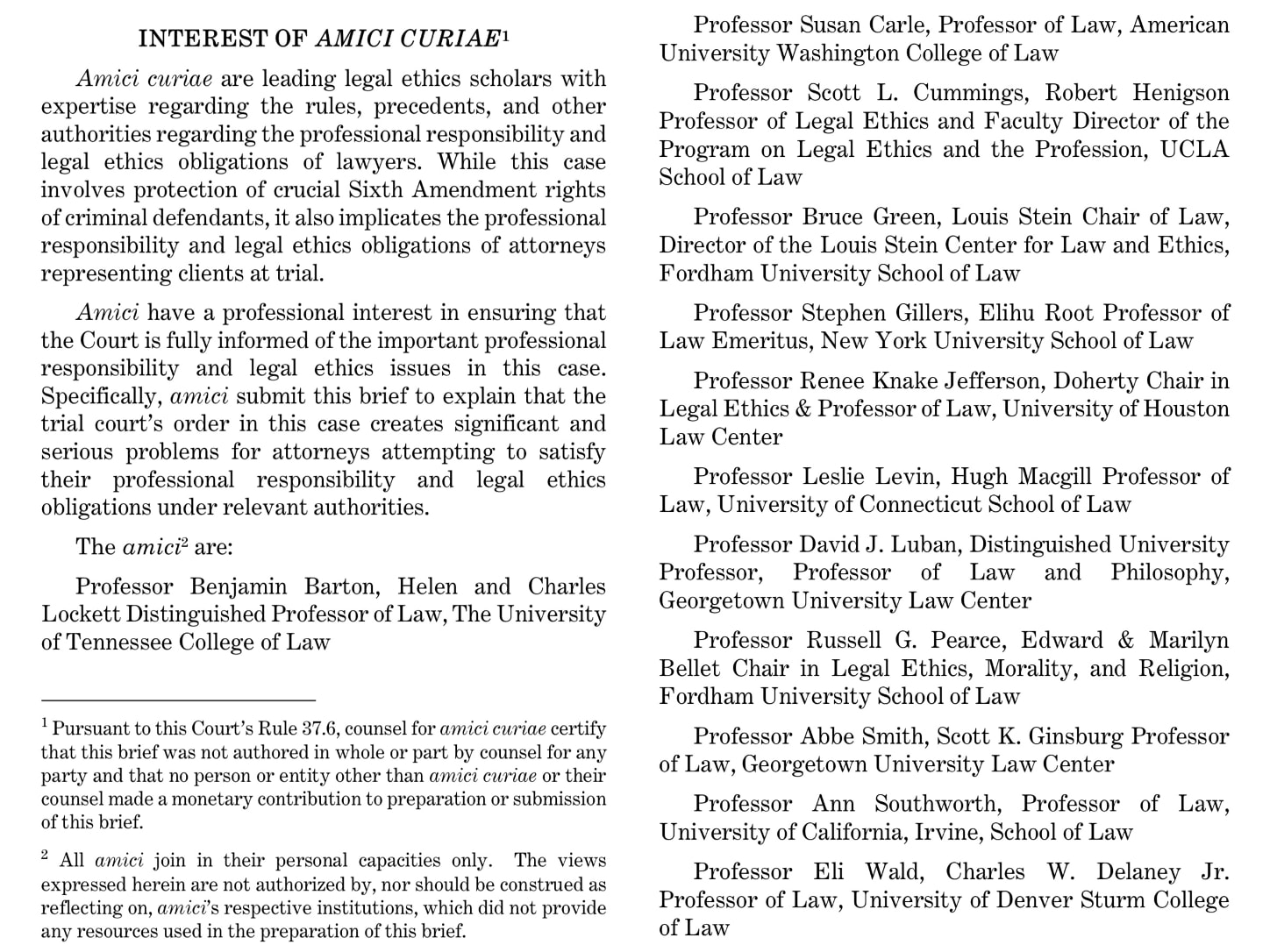
#9 The Ethics of Book Awards, Law Course Titles, and Free Speech. Two headlines for #8. First, from the New York Times: “A White Nationalist Wrote a Law School Paper Promoting Racist Views. It Won Him an Award.” “Preston Damsky is a law student at the University of Florida. He is also a white nationalist and antisemite. Last fall, he took a seminar taught by a federal judge on ‘originalism,’ the legal theory favored by many conservatives that seeks to interpret the Constitution based on its meaning when it was adopted. In his capstone paper for the class, Mr. Damsky argued that the framers had intended for the phrase ‘We the People,’ in the Constitution’s preamble, to refer exclusively to white people. … At the end of the semester, Mr. Damsky, 29, was given the ‘book award,’ which designated him as the best student in the class. According to the syllabus, the capstone counted the most toward final grades. … The Trump-nominated judge who taught the class, John L. Badalamenti, declined to comment for this article, and does not appear to have publicly discussed why he chose Mr. Damsky for the award. That left some students and faculty members at the law school, considered Florida’s most prestigious, to wonder, and to worry: What merit could the judge have seen in it? … In January, Carliss Chatman, an associate law professor at Southern Methodist University, began a stint as a visiting scholar at the school. It was not long, she said, before a number of Black and Jewish students came to her with concerns about Mr. Damsky. Ms. Chatman was struck, in part, by her own experiences at the school in contrast to Mr. Damsky’s award. She had proposed teaching a class during her time there called ‘Race, Entrepreneurship and Inequality.’ But administrators at the law school changed the name to ‘Entrepreneurship, she said, before listing it in the course catalog. … ‘I just find it fascinating that this student can write an article, a series of articles that are essentially manifestoes, and that’s free speech,’ Ms. Chatman said, referring to Mr. Damsky, ‘but my class can’t be called ‘Race, Entrepreneurship and Inequality.’” Read more here (gift link). Second, from Josh Blackman in The Volokh Conspiracy: “The New York Times Launches An Unfair Attack On Judge Badalamenti.” Read more here.
#10 “Pam Bondi’s Brother Overwhelmingly Defeated in Heated Race to Lead the D.C. Bar.” From NPR: “Employment attorney Diane Seltzer has won a closely watched contest to lead the D.C. Bar Association, defeating securities lawyer Brad Bondi in a race with record turnout. Seltzer tallied more than 90 percent of the electronic vote with ‘no issues or irregularities’ in the voting system, D.C. Bar CEO Bob Spagnoletti said in a press call Monday. More than 38,000 people voted in the race, more than five times as many voters in a typical election, he said. The race became a microcosm for the clashes and pressures on the American legal system this year, in part because one of the two top candidates is the younger brother of Attorney General Pam Bondi.” Read more here.
Get Hired
Did you miss the 150+ job postings from previous Roundups? Find them all here.
Upcoming Ethics Events & Other Announcements
Did you miss an announcement from previous Roundups? Find them all here.
Keep in Touch
- News tips? Announcements? Events? A job to post? Reading recommendations? Email legalethics@substack.com – but be sure to subscribe first, otherwise the email won’t be delivered.
Renee Knake Jefferson holds the endowed Doherty Chair in Legal Ethics and is a Professor of Law at the University of Houston. Check out more of her writing at the Legal Ethics Roundup. Find her on X (formerly Twitter) at @reneeknake or Bluesky at legalethics.bsky.social.
The post Legal Ethics Roundup: CA Upholds Eastman Disbarment; Toxic Work Culture For Federal Clerks; ABA Sues Trump; Honoring Juneteenth & More appeared first on Above the Law.
























